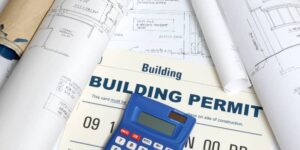How Much Do You Know About Notary Acknowledgment In NC?
A great deal, we hope, because it’s an important aspect of the notary profession to be familiar with. This guide will help you understand what it means and how to handle it when you come across this kind of document. We’ll also tell you why a notary acknowledgment in NC can be more complex than it looks! Read on for all the information you need about this crucial process and don’t forget to watch the video at the end of this article to see real-life examples from our very own North Carolina Notary Public specialists!
1- What Is A Notary Acknowledgment?
Notaries play an important role when it comes to real estate transactions. Many times, a document will be legally binding only after a notary has signed off on it. That’s why prospective home buyers need to know what makes a notary acknowledgment so powerful—and why it might be smart to hire one if you’re looking into buying property in North Carolina.
2- What Are The Requirements For Notaries?
Any person who is a resident of North Carolina, who is at least 18 years old, and not disqualified by G.S. 59-72 may become a notary public unless that person has been convicted of any felony involving moral turpitude or breach of public trust. However, if you have been convicted of any felony involving moral turpitude or breach of public trust since November 1, 1998 (and are not eligible for an absolute pardon), you are permanently disqualified from serving as a notary.
3- How Do I Sign On An Electronic Signature Pad?
The first time you use an electronic signature pad, there may be a little confused about how it works. Here’s what you need to know about signing on an electronic signature pad for the first time
- If you have not yet signed up for e-signature services with your county clerk of court or register of deeds office, do so before attempting to sign documents electronically.
- Check that your device is connected and working properly by typing something into it and making sure that whatever you type appears on the screen.
This is particularly important if someone else has used your device recently—if they did not clear their history from your device, then their information will still appear as part of yours when you try to sign documents electronically.
4- When Should I Use An Electronic Signature Pad?
Typically, these documents need a signature that is authenticated by a notary public or other officials. Some states require an actual handwritten signature, while others will accept an electronic one so long as it’s authorized by a state-certified notary. If you’re unsure whether your document requires an electronic signature pad or if you want to know more about when they can be used, contacts us!
We have staff members ready and willing to answer any questions you may have about forms and signatures.
5- Why Does It Matter If A Document Is Acknowledged By A Notary?
In North Carolina, state law requires documents to be acknowledged before they can be considered legally binding. It doesn’t matter if you sign your name using your full name or initials; what does matter is whether it has been signed by a witness, generally by a notary public. The notary acknowledgment for NC is usually completed at a bank or other office. If you are traveling and need an acknowledgment on your document, there are private companies that will assist you in completing one.
6- Can I Make Changes To My Document After Signing It With A Digital Signature?
In most cases, if you need to make changes to a document, you’ll simply create a new version of it and digitally sign that instead. If your document is already completed and ready for use, however, there are a few circumstances where you may need or want to edit it after signing. If you need help with something like this, be sure to check with your state government first; laws vary from state to state.
7- What Are Some Other Forms That Can Be Signed Digitally?
The great thing about digital notarization is that it can be used for any type of document, not just real estate documents. You can use it for everything from purchase agreements to client contracts. Many customers who use our service sign business documents electronically, such as deeds, affidavits, and closing statements. They also often file them directly with their county clerk’s office using a secured portal. If you’re interested in using e-notarization services to sign your documents digitally, contact us today! We’ll help walk you through every step of setting up your account and signing your documents digitally so that they’re legally binding—and secure!
8- Where Can I Learn More About How To Sign Documents Electronically?
NCSBE or North Carolina State Board of Examiners for Engineers and Surveyors has published useful information on its website. According to NCSBE, it is legal for a notary public to notarize electronically in North Carolina. This means that you can use electronic signatures within your state when making notarizations, as long as they are compliant with North Carolina statutes. You may also want to refer back to your state’s administrative code governing private sector notaries.








